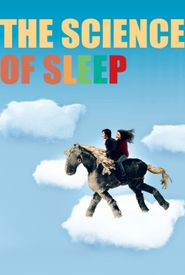Michel Gondry's early life was significantly influenced by his family's affinity for pop music. Growing up in Versailles, he was surrounded by a musical environment that would later shape his artistic endeavors. As a young boy, Gondry aspired to become either a painter or an inventor, showcasing his creative inclinations from an early age.
In the 1980s, Gondry enrolled in an art school in Paris, where he refined his graphic skills and forged lasting friendships with like-minded individuals. It was during this period that he co-founded a pop-rock band called Oui-Oui with his friends. The band released two albums, 'Chacun tout le monde' and 'Formidable', as well as several singles, before disbanding in 1992. As the drummer and driving force behind the band, Gondry also directed their music videos, which showcased his unique visual style, heavily influenced by the 1960s and his childhood.
One of his music videos caught the attention of Björk, who subsequently commissioned Gondry to direct her first solo video for 'Human Behaviour'. This partnership would prove to be a defining moment in Gondry's career, as he went on to direct five more videos for the Icelandic singer-songwriter, benefiting from her generous budgets. These collaborations not only further solidified Gondry's reputation as a visionary director but also led to commissions from other renowned artists worldwide, including Massive Attack.
Gondry's commercial success in the music video realm soon translated to the world of advertising, as he directed campaigns for prominent brands such as Gap, Smirnoff, Air France, Nike, Coca-Cola, Adidas, Polaroid, and Levi's. His work on the latter's commercial earned him the distinction of being the most highly-awarded director for a single commercial.
As Gondry's profile continued to rise, Hollywood took notice, and he made his feature film debut with Human Nature (2001),an adaptation of Charlie Kaufman's screenplay. Although the film received mixed reviews, it provided Gondry with the opportunity to collaborate with Kaufman once more on Eternal Sunshine of the Spotless Mind (2004). This critically acclaimed independent film would go on to win an Academy Award, cementing Gondry's status as a visionary director in the world of cinema.





































